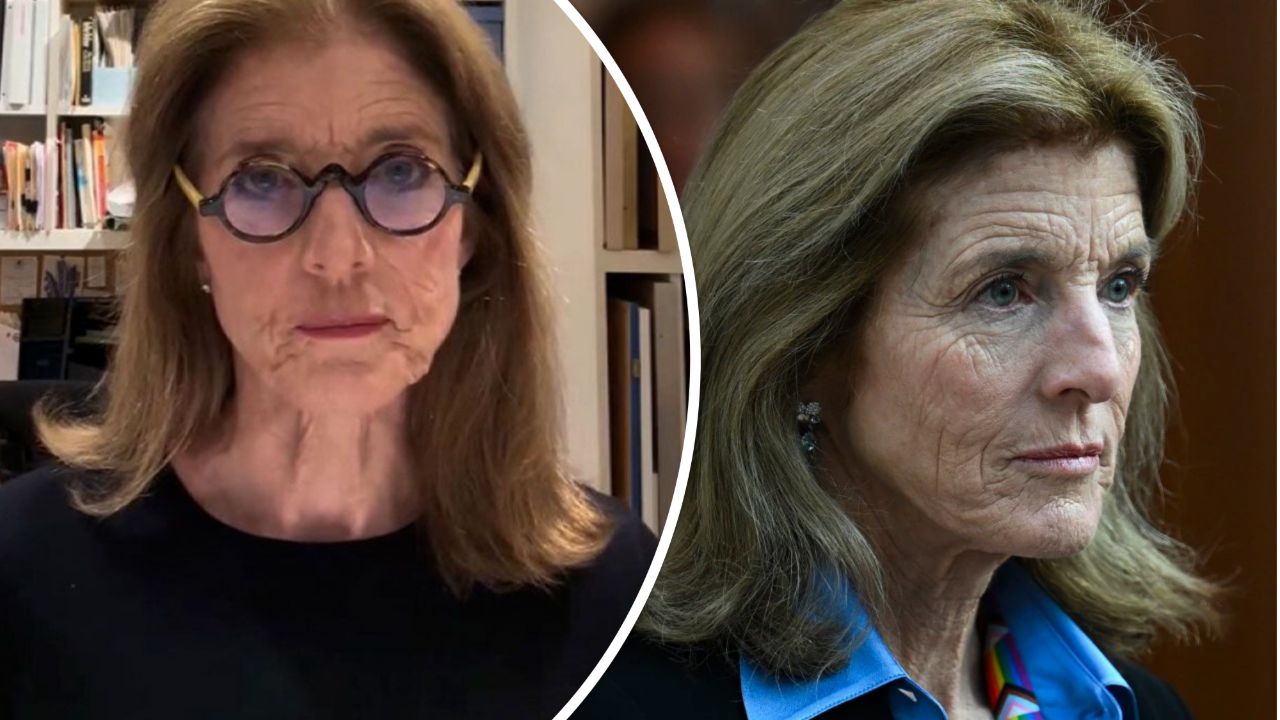Caroline Kennedy's Scathing Letter: [Robert F. Nomination]
Does the enduring legacy of a name guarantee immunity from familial dissent? Caroline Kennedy, a scion of one of America's most celebrated political dynasties, has emphatically answered with a resounding 'no'.
In a move that has reverberated across the political landscape, Caroline Kennedy, the daughter of President John F. Kennedy and Jacqueline Kennedy Onassis, has publicly voiced her opposition to her cousin, Robert F. Kennedy Jr.'s, nomination for the position of head of the Department of Health and Human Services. The timing of her intervention, just a day before Robert F. Kennedy Jr.'s confirmation hearings, has amplified the impact of her disapproval, casting a long shadow over the proceedings and raising pertinent questions about the complex dynamics within the Kennedy family.
Her public rebuke, delivered in the form of a "scathing letter to senators," underscores the deep-seated divisions that exist within the family regarding Robert F. Kennedy Jr.'s candidacy. This isn't merely a matter of political disagreement; it represents a fundamental clash of values and a critical assessment of the nominee's suitability for a critical role. Caroline Kennedy's decision to speak out, given her own distinguished career in public service, holds significant weight, illustrating the gravity of her concerns and the depth of her disapproval.
- Where To Watch Stream Movies Your Ultimate Guide 2024
- Trending Now Latest Telugu Releases More Refer Earn Gold
Caroline Kennedy, a figure who has spent her life under the scrutiny of the public eye, embodies a legacy of public service, literature, and diplomacy. Her life, from her birth in New York City on November 27, 1957, to her current role as a respected figure in American society, has been shaped by the weight of her family's history. As a member of the iconic Kennedy family, Caroline has always been under the spotlight. Her accomplishments and public roles are always being watched by the public eye.
The recent developments surrounding Caroline Kennedy have also brought attention to her personal life, prompting discussions about her health and appearance. Questions have arisen concerning the natural aging process versus potential underlying health conditions. These conversations, though sometimes intruding on privacy, highlight the enduring fascination with public figures and the inherent human curiosity about their well-being.
| Attribute | Details |
|---|---|
| Full Name | Caroline Bouvier Kennedy |
| Date of Birth | November 27, 1957 |
| Place of Birth | New York City, New York, USA |
| Parents | John F. Kennedy, Jacqueline Kennedy Onassis |
| Education | Radcliffe College (B.A.), Columbia Law School (J.D.) |
| Spouse | Edwin Schlossberg (m. 1986) |
| Children | Rose Kennedy Schlossberg, Tatiana Kennedy Schlossberg, John Schlossberg |
| Career Highlights |
|
| Notable Achievements |
|
| Health | Reportedly diagnosed with Rheumatoid Arthritis. |
| Link to Reference | John F. Kennedy Presidential Library and Museum |
Caroline's decision to embrace the natural process of aging has also been noted, with observations about her skin texture leading to public discussion. While some speculate about potential medical conditions, it is important to respect her choices and understand the aging process as a natural part of life. This has not only brought attention to the concept of aging gracefully but also raised questions about media's treatment of women in the public eye. The scrutiny underscores the pressure public figures face regarding their appearance.
- Vegamovies Your Guide To Free Movies Streaming Options
- Movierulz 2025 Latest Telugu Tamil More Watch Now
Adding another layer of complexity to the narrative is the reported diagnosis of rheumatoid arthritis. This inflammatory condition, which affects joints and can cause significant discomfort, adds a layer of context to the public's observations about her health. The disclosure, while not fully detailed, provides a piece of information that helps to explain her health situation. While the details of her health may not be fully disclosed, her public role in the U.S. diplomatic service indicates she is still able to perform her duties.
Caroline Kennedy's life, filled with public service, literature, and diplomacy, serves as a testament to the enduring legacy of her family and her own personal contributions. As an experienced therapist, Caroline Kennedy, specializes in facial treatments for women and men of all ages. She has worked with researcher Donald Graves on creative writing projects supported by the National Institute of Education before establishing the TCRWP in 1981.
The context of Robert F. Kennedy Jr.'s confirmation hearings, as well as the broader discussion of familial dynamics and the significance of health in the public eye, are also relevant.
Article Recommendations
- Movie News Reviews Bollywood Tollywood More Find On Justwatch
- Telugu Movies Movierulz Updates Latest News Streaming Info



Detail Author:
- Name : Diego Little Sr.
- Username : igrant
- Email : swift.elwyn@considine.com
- Birthdate : 1976-01-26
- Address : 6002 Ebert Centers Goyettetown, NC 67432-3340
- Phone : 408-500-6549
- Company : Batz PLC
- Job : Dentist
- Bio : Molestiae error tempora ex qui et quo. Voluptatem quidem nesciunt ut aut eos. Doloribus aut voluptatem temporibus commodi fugit perspiciatis est quia. Occaecati hic quod praesentium eum a eveniet.
Socials
tiktok:
- url : https://tiktok.com/@carrollh
- username : carrollh
- bio : Quibusdam voluptatem odio quae unde qui optio.
- followers : 282
- following : 2900
twitter:
- url : https://twitter.com/carrollh
- username : carrollh
- bio : Sit eos quidem est iure ipsum numquam voluptatem. Minus qui tempora impedit non a quam. Fugiat rerum nemo tempore. Enim et quidem velit necessitatibus.
- followers : 6122
- following : 776